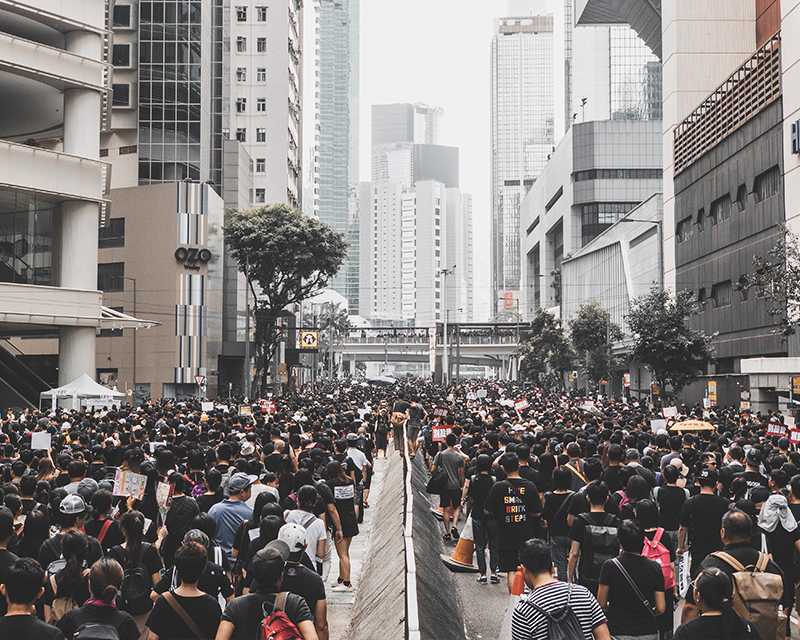Molotov cocktails. Tear gas. Graffiti.
The great turmoil and violence Hong Kong has been engulfed in for the past eight months only continues to escalate.
An SIS graduate in her sophomore year at Hong Kong University, Jiwon Chung returned to South Korea on Nov. 13. Two days before she left Hong Kong, Jiwon began making her way to class just to be notified that all classes had been canceled due to the protests.
“My school made an official announcement that students should not come to the main campus as it was dangerous,” said Jiwon. “This was extremely unusual and alarming, especially since street protests usually occur on the weekends as students and office workers get off on the weekends.”
The evening afterward, policed stormed onto the Chinese University of Hong Kong (CUHK), firing tear gas and rubber bullets as protesters responded with bricks and Molotov cocktails.
“Although I was worried at this point, my friends and I were living in a relatively safe area and weren’t concerned. I thought it was alright for me to stay in Hong Kong and wait for the conflict to resolve.”
Regardless of Jiwon’s perceived safety, her parents booked a flight back to Korea for her Wednesday morning. As protestors blocked all major roads, including the one leading to the airport, Jiwon was forced to take the subway to the airport.
“I realized how serious the situation was when my mainland Chinese floormate, in pitch darkness, asked for a mask as there were rumors that student protestors were going to attack mainland Chinese students on campus on Wednesday. She had been preparing for a presentation in our room. When her friend relayed the news, she left right away, not taking anything besides her ID and passports, asking me for a mask.”
Jiwon’s school announced the official termination of face-to-face classes for the semester two days after she left. Several of her friends at other universities continue to be forced out of their dorms and into nearby hotels as police raided dorms to arrest active student protestors.
“Life in Hong Kong wasn’t as bad as I expected it to be. However, it was definitely different. The campus was laden with posters and graffiti upon my return in September. Students protestors had vandalized school property so they could use those as material to defend against police in the case of an attack, which never happened. Having had operated 24 hours prior to the protests, subway lines would now close by 10. It was really inconvenient traveling back from campus to my dorm, especially when I was trying to study late at night.”
Although Jiwon understands both the mainland and Hong Kong’s stances, she does not know what will ultimately come out of the protests. Regardless, she believes the protests could become somewhat bearable by adopting nonviolent means of protesting, whether it be donating to journalists, writing to representatives, or spreading awareness.
“I’m 100% on the side of non-violence, against violence in all circumstances. I think the violence between the police and protestors are not a single bit rational, it’s only creating more noise and excuses for both sides. I sincerely hope SIS students how lucky they are to be able to study and live in an independent country with guaranteed safety and basic human rights.”

